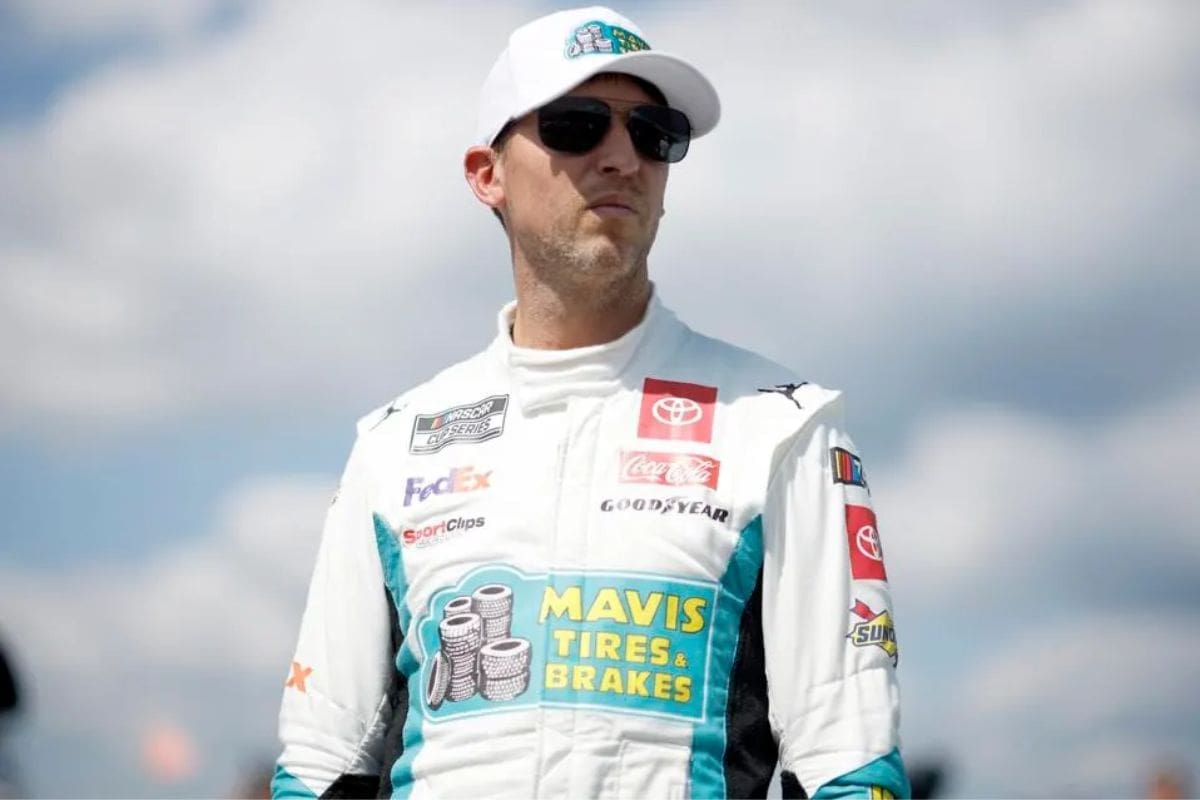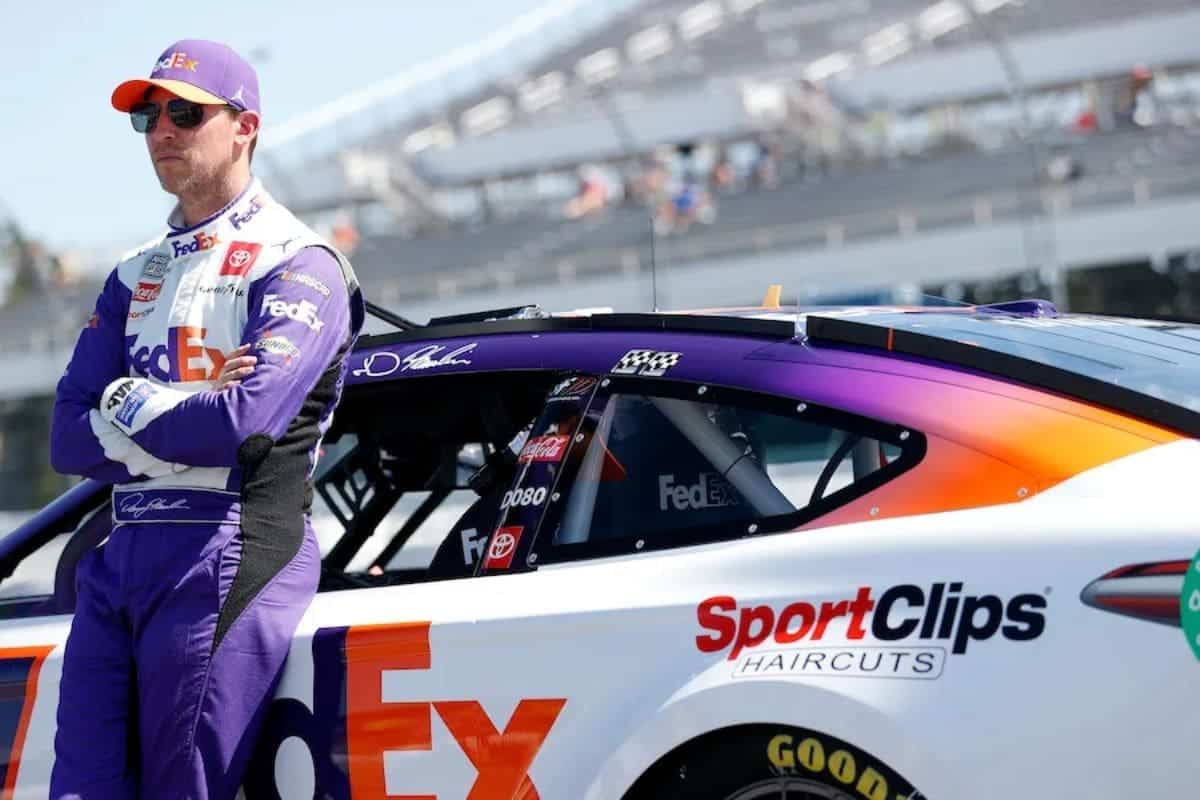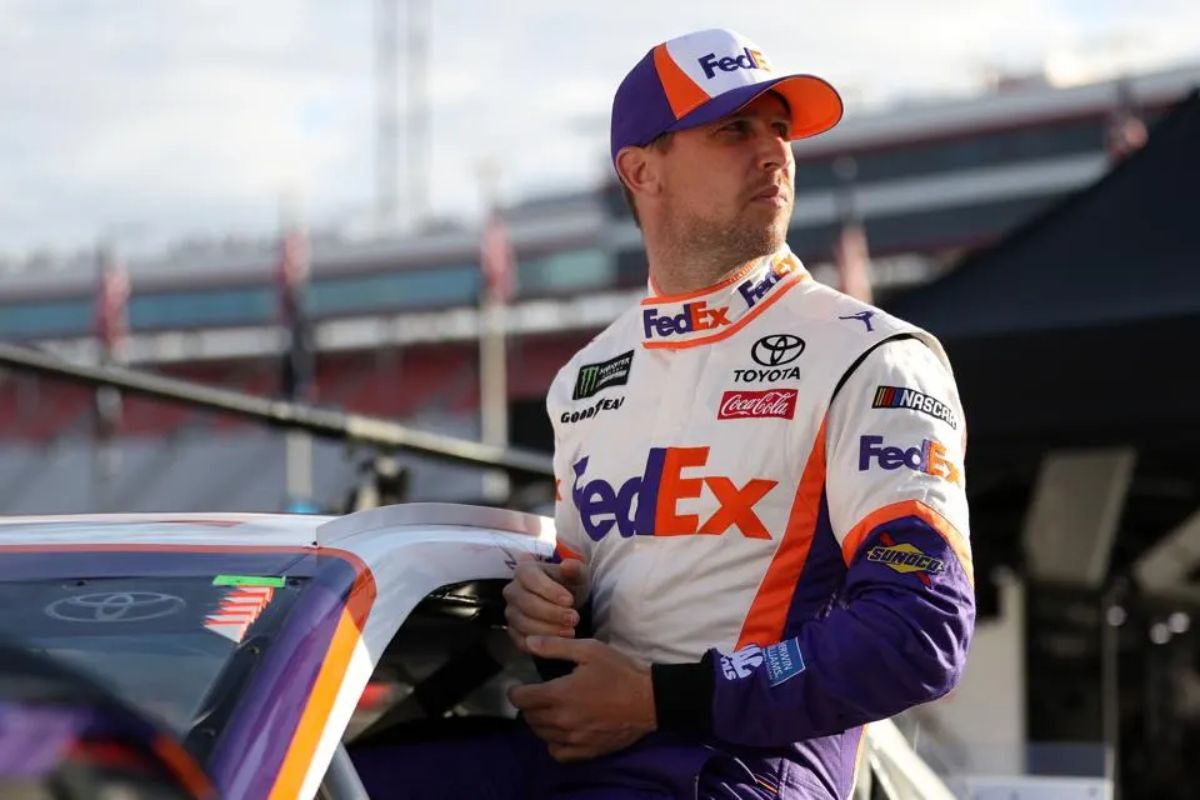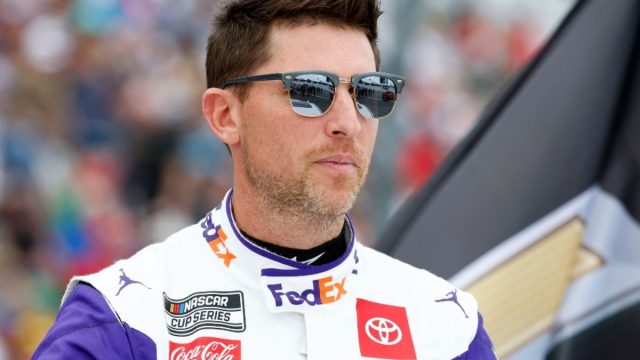Denny Hamlin Slams NASCAR’s Financial Transparency: Denny Hamlin’s critique towards NASCAR’s financial transparency marks a pivotal moment in the sport’s ongoing dialogue between team owners and its governing body. This call for a more open financial framework not only highlights the existing tensions over revenue distribution and stakeholder relationships but also shows the significant implications for the competitive health and economic sustainability of the teams involved. Hamlin’s stance, demanding for a shift towards improved governance and equitable financial practices, sets the stage for an important examination of how transparency within NASCAR could pave the way for a more financially robust and equitable future.
Key Takeaways
- Denny Hamlin criticizes NASCAR for lack of financial transparency and equitable revenue distribution.
- Hamlin expresses frustration over the misalignment of business objectives and team needs.
- Demand for reforms to ensure financial well-being and competitive health of racing teams.
- Calls for a more transparent governance framework within NASCAR’s economic model.
- Highlights the need for improved stakeholder relationships and operational transparency.
Denny Hamlin and SMI Debate
The recent criticism by Denny Hamlin against SMI CEO Marcus Smith has ignited a significant controversy within the NASCAR community, marking a pivotal moment in the escalating tensions between team owners and the sport’s governing bodies. Hamlin’s outspoken stance brings to the forefront long-simmering issues that have increasingly strained the relationship between those who manage the sport and those who participate at its highest levels. This incident is not isolated but is indicative of a broader dissatisfaction that has been rising over how NASCAR and its affiliated organizations, like Speedway Motorsports, handle governance, financial dealings, and communication with teams and drivers.
Analyzing the situation reveals a complex web of concerns that go beyond the immediate implications of a deteriorating track surface. The critique from Hamlin symbolizes a growing demand for transparency, accountability, and a more equitable distribution of the sport’s revenues and decision-making power. It shows a perception among some team owners and drivers that their voices are not adequately valued in the decision-making processes that directly affect their careers and the sport’s overall health.

Concerns Over Track Maintenance and Financial Transparency
In light of recent criticisms, NASCAR faces mounting scrutiny over its track maintenance practices and the transparency surrounding its financial operations, highlighting a critical stage in the sport’s governance and stakeholder relations. This concern is not isolated but stems from a collective voice of team owners, insiders, and particularly, from figures like Jeff Gluck, who vocalized frustrations regarding short-track racing conditions. The resurgence of NASCAR’s popularity and its apparent success in attracting sponsors raise fundamental questions about the allocation of its revenue, especially in relation to the maintenance of tracks and the equitable distribution of profits among teams.
The spotlight on Speedway Motorsports and NASCAR’s reluctance to disclose detailed financial information has intensified debates about the sustainability of the sport’s economic model. The deteriorating condition of tracks, compared with NASCAR’s expanding sponsorships, paints a paradoxical picture of a sport thriving on the surface yet grappling with foundational issues beneath. This contrast not only challenges the perception of NASCAR’s financial health but also raises concerns about the long-term viability and integrity of the racing experience.
Denny Hamlin’s Frustrations
Amidst growing concerns over NASCAR’s financial transparency and track maintenance, Denny Hamlin has voiced his frustrations, pointing to a misalignment between the sport’s business objectives and the needs of its teams. This tension shows a broader issue within the motorsports industry, where the economic model seemingly prioritizes organizational profits over the equitable distribution of resources necessary for team sustenance and competitive parity. Hamlin’s critique brings to light the intricate dynamics between NASCAR and its stakeholders, especially regarding financial arrangements and the accountability mechanisms in place for revenue sharing and reinvestment in the sport’s infrastructure.
Hamlin’s dissatisfaction lies in the opaque nature of financial dealings between NASCAR, track owners like Speedway Motorsports Inc., and the teams. The lack of transparency in how revenues are split raises questions about the fairness and sustainability of the current economic model, particularly in how it impacts team operations and their ability to meet rising costs. This situation is made worse by occasional lapses in track maintenance, which although not frequent, signal a potential neglect of the sport’s physical assets in favor of maximizing short-term profits.
“The race teams had four or five representatives on the financial side compare notes and say, ‘What is everyone really spending to make this show happen’…(…)..and so we came back and said, ‘Here’s the number,’ and their offer to us falls way short of that.” – (Hamlin)

Hamlin’s Attempts at Transparency
Denny Hamlin’s proactive steps towards enhancing financial transparency within NASCAR have recently been highlighted through his initiative to bring together team representatives to analyze and discuss the actual costs involved in sustaining competitive racing operations. On the latest episode of Actions Detrimental, Hamlin voiced his concerns regarding the disparity between the teams’ financial realities and the remunerations offered by the organization. By coordinating a collective effort among various team financial representatives, Hamlin aimed to establish a clear, unified presentation of the operational expenditures faced by teams, challenging the adequacy of NASCAR’s financial support and distribution models.
The teams shared their accounting books with officials to prove they needed more money to cover their fixed costs. But NASCAR’s offer wasn’t enough. They refused to give the teams more money from the revenue. So, Denny met Marcus Smith face-to-face to talk about the owners’ complaints.
“That puts tons of pressure back on us to then have to sell tons of sponsorships just to break even.”
“Went to lunch with Marcus. I tried to explain to him, ‘Here’s why we have these struggles, Marcus. Here are our numbers’. He asked me, ‘What do you think we make?’ I said, ‘I can estimate, but what are you being so secretive about? I don’t understand…(..)…Why can’t you be as transparent as what we’ve been back to you guys at NASCAR about our costs?’” – (Hamlin)
Impact and Reflection
Hamlin didn’t get the answers he wanted, but he thinks he knows why NASCAR and SMI are keeping things under wraps. He believes it’s because of the amount of money they’re making. He also revealed the main reason he got upset with the SMI CEO was because of this secrecy surrounding the revenue.
“It’s secretive because it’s a big number. They make a lot of money.” – (Denny)
Despite NASCAR making a lot of money, Hamlin was really mad when he found out they wouldn’t give the teams more of it. And things got even worse when experts weighed in on the tarmac failure at Sonoma Raceway.
Hamlin admitted that his feelings about the secrecy had affected his behavior on the track. He opened up about his regrets regarding how he handled things.
“So that’s where my frustrations stem from and it’s why I got triggered when I saw that picture of Sonoma. I’m no paving guy. But plenty of paving guys chimed in on what they say, and all of it was, ‘They didn’t spend money, they didn’t do it right’, and so, why aren’t you investing in to do it right? That was my problem with it and stems obviously from other stuff.”
“I definitely shouldn’t have chimed in, I guess. I don’t know, sometimes you need to get people talking about something to get change. I certainly regret the personal stuff for sure, but it’s just very agitating as someone who’s invested a lot of money into the sport over the last four years to see how these three parties, it’s just frustrating to see how it’s all run.” – (Denny)

News in Brief
Denny Hamlin’s critique of NASCAR’s financial opacity shows a pivotal moment in the sport’s governance and its relationship with stakeholders. His call for greater transparency and equitable revenue distribution reflects broader concerns about the financial sustainability and competitive balance within NASCAR.
This discourse not only highlights the existing disparities but also emphasizes the necessity for reformative measures to guarantee the long-term prosperity and integrity of the sport.
Hamlin’s outspoken stance catalyzes a necessary dialogue on enhancing financial governance and stakeholder relations in NASCAR.
Our Reader’s Queries
Q: What is Denny Hamlin known for?
A: As the longest-serving driver at Joe Gibbs Racing, Denny Hamlin has amassed over 500 starts in the NASCAR Cup Series. His impressive track record includes victories at 16 out of the 24 race tracks on the circuit, highlighting his versatility across various track styles, from short tracks to superspeedways and road courses.
Q: How did Denny Hamlin get rich?
A: Denny Hamlin’s estimated net worth stands at a remarkable $65 million, a testament to his success both on and off the track. Alongside his illustrious racing career, Hamlin has ventured into various off-track endeavors contributing to his wealth. Additionally, he holds the role of team owner at 23XI Racing, further diversifying his involvement in NASCAR.
Q: What are some fun facts about Denny Hamlin?
A: As a driver,Hamlin has won a total of 53 NASCAR Cup Series races, including the Coca-Cola 600 in 2022, the Southern 500 in 2010, 2017, and 2021, and the Daytona 500 in 2016, 2019, and 2020; he is the fourth person to win the race in back-to-back seasons, alongside Richard Petty, Cale Yarborough, and Sterling Marlin.
Also Read: Denny Hamlin Slams Brad Keselowski: NASCAR’s Practice Debate Heats Up!

